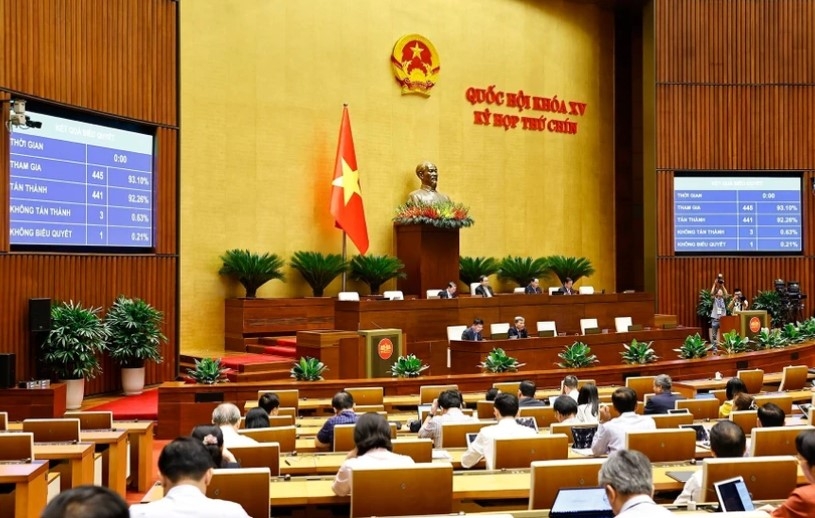Law on Digital Technology Industry, amended Law on Chemicals adopted
The 15th National Assembly passed the Law on Digital Technology Industry and the revised Law on Chemicals during its ongoing ninth session on June 14.
With 441 out of 445 lawmakers voting in favour, the Law on Digital Technology Industry was adopted, setting the legal framework for developing Vietnam’s digital industry, including semiconductors, artificial intelligence (AI), and digital assets.
Presenting the report on revisions to the draft law, Chairman of the NA’s Committee on Science, Technology and Environment Le Quang Huy said the legislation outlines policies to attract investment in research, development, and technology transfer; build national and regional digital industrial infrastructure; and gradually master digital technologies.
A key highlight is the introduction of policies to attract and develop digital talent. The law defines “digital technology talent” as individuals with notable expertise and achievements in the sector across both public and private domains. Clear criteria for identifying such talent are also included to ensure transparency and enable appropriate recruitment and incentives.
The law encourages AI training and re-skilling within the national education system and promotes workforce development strategies across both public and private sectors. AI is also identified as a priority for research and application.
On digital assets, it recognises their legal status under civil law and stipulates rights to ownership, transactions, data security, and dispute resolution through existing frameworks, including anti-corruption and anti-money laundering laws.
The same day, the NA also passed the amended Law on Chemicals, with 442 out of 445 deputies voting in favour.
According to Huy, the revised law reflects feedback from legislators to promote sustainable development by encouraging the efficient use of natural resources and environmentally friendly chemicals.
It introduces provisions on priority development sectors aligned with each development stage, targeting high-value chemicals that contribute to socio-economic progress. It also ensures environmental safety, national security, and defence.
A new article sets out strategic tasks to boost the chemical industry, including support for key and innovative products.
The law also enhances management by requiring new chemical registration procedures, data integration into the national database, and stricter traceability and disclosure rules for controlled substances.




